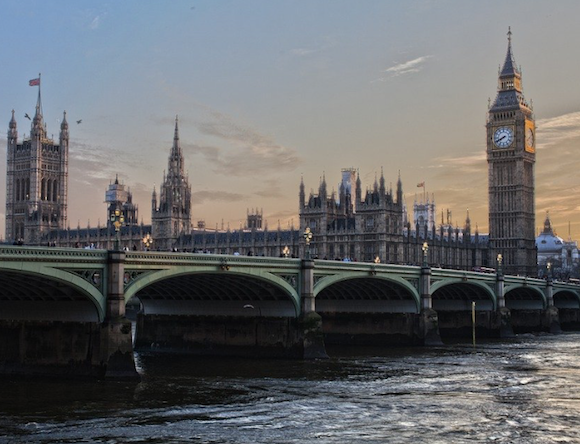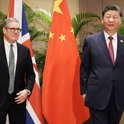Trade, cooperation and new partnerships around the globe are paramount, now more than ever. The UK, like most other countries, will need to carve a path out of the pandemic and kickstart its economy. But unlike the rest of the world, the UK will also be looking to position itself post-Brexit, seeking to strengthen existing partnerships and build new ones by signing up to new international agreements.
These can be just as crucial as the laws we make in parliament. International agreements (otherwise referred to as treaties) affect us all—future trade deals with major economies such as the US could affect jobs, the price and availability of goods and our environmental standards. The UK is also signing other important agreements affecting our security and our rights. Scrutiny by parliament must therefore not be an afterthought, but an integral part of the overall treaty-making process. After all, greater scrutiny makes for better policies and may help uncover issues at an early stage.
The House of Lords International Agreements Committee, which I chair, has recently become a full Select Committee (having previously operated as a sub-committee). We have an ambitious remit to scrutinise international agreements in a new, post-Brexit context. Our focus has been on the UK's new trade policy, new trade agreements, as well as the roll-over of those agreements that the UK was previously a part of as a member of the EU. We also scrutinise a large variety of non-trade agreements, which have covered topics as diverse as space launches, voting rights and the Istanbul Convention on the prevention of violence against women and girls.
All this reflects a growing recognition of the importance of parliamentary scrutiny. Historically, parliament’s role in scrutinising treaties has been very limited. Even with the changes brought in by the Constitutional Reform and Governance Act 2010 (CRAG), it remains sub-optimal. The Act only requires the government, after laying an agreement in parliament, to wait 21 sitting days before ratifying it—and even that can be overridden. In those 21 days, the International Agreements Committee’s role is to analyse the agreement and, if appropriate, seek evidence from stakeholders. Our mandate is to produce a report and, if an agreement raises important questions for the UK, recommend it for further debate. In practice, completing all the necessary steps and debating agreements in the Upper House within 21 days means the timeframe is tight. The process is ripe for reform.
We have so far enjoyed a positive working relationship with the government and received confidential progress reports covering several trade negotiations. We also received early access to the text of the UK’s recent trade agreement with Japan to help with scrutiny. This level of engagement has supported the committee’s efforts to report on the final agreement with Japan, but also serves to highlight the limitations inherent in CRAG.
An additional challenge is that we have no formal role in the early objective-setting process, which is when the parameters for the negotiations are set and the broad outlines of a deal are determined. In an ideal world, parliament would have a role in endorsing or—at the very least—debating the negotiating mandates for future agreements, particularly trade agreements that have the potential to affect people’s daily lives. This is what happens in the US and the EU. On 9th February, a compromise Lords amendment to the Trade Bill to strengthen parliamentary scrutiny was, sadly, defeated in the Commons. Discussions are underway to seek a further compromise.
This does not mean that our hands are tied while we wait for legislative change. We can still inform and influence negotiations to ensure that the best deals are struck, by engaging extensively with ministers, negotiators and other stakeholders. For example, we are currently holding inquiries into the negotiations with the US, Australia and New Zealand, as well as on the UK’s accession to the CPTPP, a Pacific trade bloc. On Australia and New Zealand in particular, we have already raised questions on protections for UK farmers, on animal welfare, environmental standards and intellectual property.
We continue to emphasise to the government the benefits of parliamentary scrutiny and press for stronger scrutiny commitments. Until such commitments can be put on a statutory footing, however, the International Agreements Committee is working hard to ensure that the treaties that are being negotiated on our behalf reflect the best possible outcome.
Read more: David Anderson interview—parliament on the international plane













